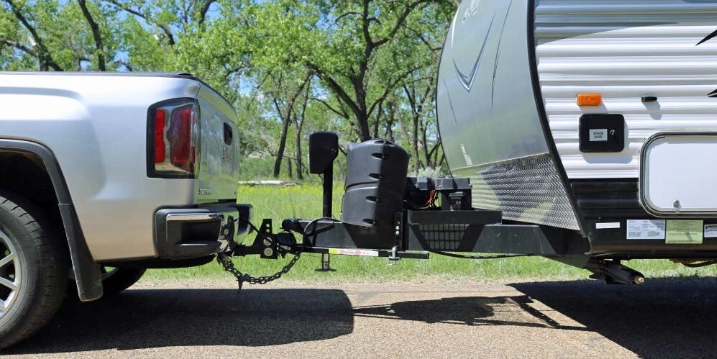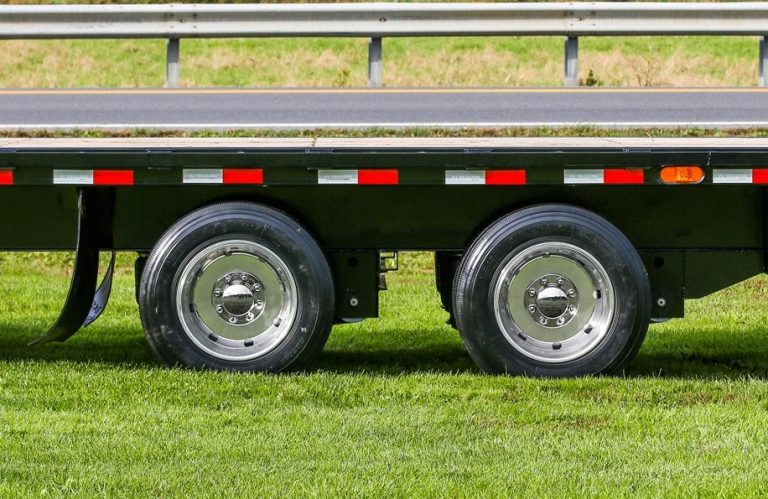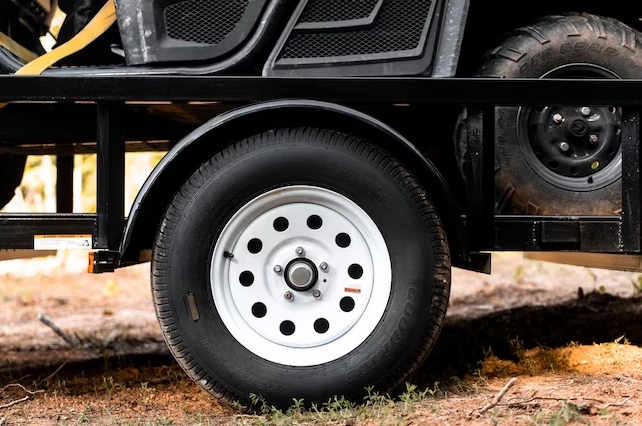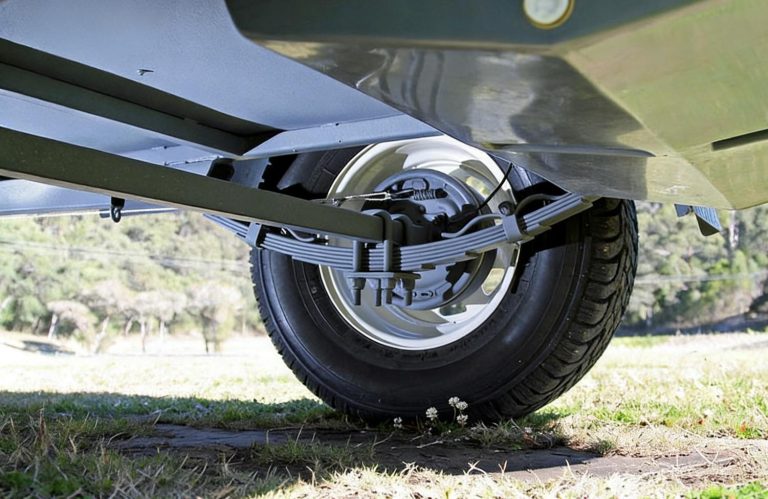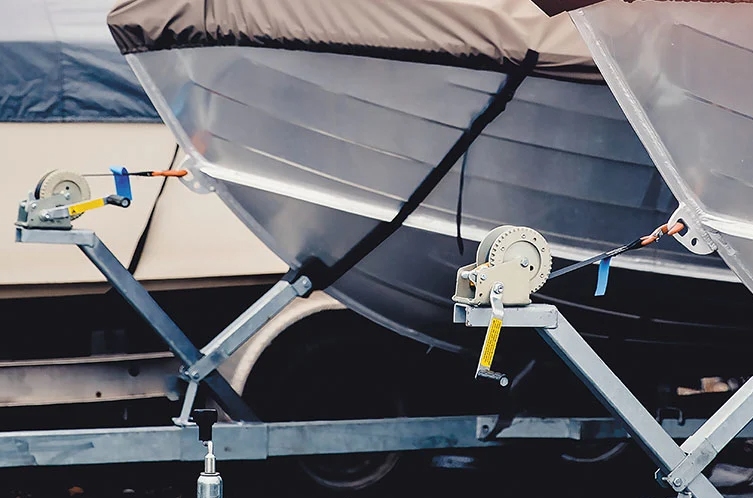Picking the perfect trailer coupler is super important for safe and smooth towing. Whether you’re pulling a tiny utility trailer, a big RV, or heavy gear, the coupler links your trailer to your vehicle. It keeps everything steady and lets you turn easily. With so many trailer coupler types out there, knowing their perks and uses helps you make a smart choice.
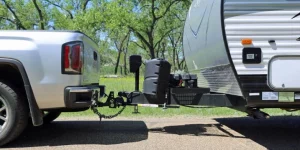
This guide compares common hitch couplers—like ball couplers, pintle hitches, and gooseneck couplers—to help you find the best one for your trailer.
What Are Trailer Couplers?
A trailer coupler is the part that hooks your trailer to your tow vehicle’s hitch. It allows smooth turns while keeping the connection tight. Choosing the right trailer coupler depends on your trailer’s tongue shape, weight, and what you’re towing. A wrong or weak coupler can cause wobbling or even accidents. So, it’s key to learn about your options.
Why Picking the Right Coupler Is a Big Deal
A bad coupler can mess up safety and performance. For example, a coupler with a low weight limit might break under a heavy trailer. Or, a mismatched hitch ball size could make things shaky. By looking at a hitch coupler comparison, you can dodge these problems and tow safely.
Popular Trailer Coupler Types and Their Uses
Let’s check out the most common trailer coupler types and what they’re good for. This will help you figure out which one fits your towing needs.
Ball Couplers: Simple and Handy
Ball couplers are super popular in the US. They’re easy to use and work for many trailers. They have a socket that fits over a hitch ball and locks with a latch for a snug fit. These are great for light to medium towing.
- Features:
- Come in standard sizes: 1-7/8″, 2″, and 2-5/16″.
- Have easy latches like posi-lock or sleeve-lock.
- Made of steel or cast iron with rust-proof coatings like zinc.
- Perks:
- Cheap and easy to find.
- Simple to set up and use, perfect for casual towers.
- Work with most cars, SUVs, and trucks.
- Best for:
- Small to medium trailers like utility, boat, or light RVs (up to 20,000 lbs GTW).
- Downsides:
- Can’t handle super heavy loads.
- Might wobble with bigger trailers without extra gear.
A-Frame Couplers: Strong for Bigger Trailers
A-frame couplers are made for trailers with A-shaped tongues. You see these on travel trailers, car haulers, or medium utility trailers. They’re tough and support heavier loads.
- Features:
- Bolt onto A-frame tongues, usually at a 50-degree angle.
- Handle 5,000 to 21,000 lbs GTW.
- Often have cool latches like QuickPin for fast hookups.
- Perks:
- Give a solid, steady connection with less shaking.
- Good for highways or bumpy dirt roads.
- Often galvanized to fight rust, great for wet or beachy areas.
- Best for:
- Medium to large RVs, car haulers, or utility trailers needing strong support.
- Downsides:
- Don’t work for straight-tongue or gooseneck trailers.
- A bit trickier to install than ball couplers.
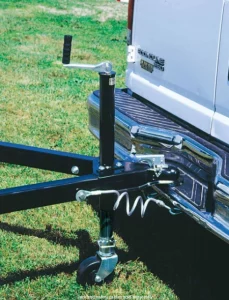
Gooseneck Couplers: Built for Heavy Loads
Gooseneck couplers are for serious towing. They connect to a hitch ball in a truck bed. These are awesome for big trailers because they’re super stable and spread weight evenly.
- Features:
- Handle up to 30,000–40,000 lbs GTW.
- Fit 2-5/16″ hitch balls in the truck bed.
- Often let you adjust height for level towing.
- Perks:
- Really stable for long trips.
- Spread weight to ease strain on your truck.
- Let you turn tighter than regular couplers.
- Best for:
- Big RVs, fifth-wheel trailers, horse trailers, or large cargo trailers.
- Downsides:
- Need a truck with a gooseneck hitch in the bed.
- Cost more and are harder to set up.
Pintle Hitches: Tough and Reliable
Pintle hitches, like lunette rings or pintle loops, are for heavy-duty jobs. They’re used in farming, construction, or military towing. They pair with a pintle hook on your vehicle.
- Features:
- Support up to 60,000 lbs GTW.
- Move more for rough ground.
- Made of strong forged steel.
- Perks:
- Super tough and dependable for heavy stuff.
- Great for off-road or rugged spots.
- Easy to hook up with a hook-and-loop setup.
- Best for:
- Heavy equipment trailers, farm trailers, or military gear.
- Downsides:
- Can be loud while towing.
- Not common for fun towing since they need special hitches.
Adjustable Couplers: Flexible for Many Trailers
Adjustable couplers are great if you tow with different vehicles or trailers. They mount on a channel you can move up or down to adjust height.
- Features:
- Handle 2,000 to 25,000 lbs GTW.
- Have dual or triple balls for different hitch sizes.
- Often include anti-rattle parts for quieter rides.
- Perks:
- Adjustable height keeps towing level with any setup.
- Work for people towing lots of different trailers.
- Save you from buying multiple couplers.
- Best for:
- Folks with varied towing needs, like contractors or fleet drivers.
- Downsides:
- Cost more than fixed couplers.
- Need more care to keep connections tight.
Trailer Coupler Comparison Table
| Coupler Type | Weight Capacity (lbs) | Best For | Hitch Ball Size | Top Perk | Main Downside |
| Ball Coupler | 2,000–20,000 | Light to medium trailers | 1-7/8″, 2″, 2-5/16″ | Cheap, easy | Low weight limit |
| A-Frame Coupler | 5,000–21,000 | Medium to large RVs | 2″, 2-5/16″ | Steady, rust-proof | Not for straight tongues |
| Gooseneck Coupler | 30,000–40,000 | Heavy trailers | 2-5/16″ | Very stable | Needs truck bed hitch |
| Pintle Hitch | Up to 60,000 | Industrial, off-road | N/A (pintle hook) | Tough, high capacity | Loud, specialized |
| Adjustable Coupler | 2,000–25,000 | Multiple trailers | Multiple sizes | Flexible | Costs more |
Tips to Pick the Best Trailer Coupler
To find the right trailer coupler, think about these things:
- Tongue Type: Make sure the coupler matches your trailer’s tongue (straight, A-frame, or gooseneck).
- Trailer Weight: Pick a coupler that can handle more than your trailer’s full weight (GTW). A higher rating is safer.
- Hitch Ball Size: Check that the coupler fits your vehicle’s hitch ball (like 1-7/8″, 2″, or 2-5/16″).
- Where You Tow: For beachy or wet places, get galvanized couplers to stop rust. For off-road, pintle hitches move better.
- Ease of Use: Look for auto-latch or QuickPin couplers for fast hookups.
- Safety: Get couplers with strong locks, like posi-lock or safety pins, to stay secure.
Pro Tip: Double-check your vehicle’s hitch class (Class I–V). It needs to match the coupler’s weight rating.
Signs of Bad Coupler
Watch for signs of bad coupler to know when it’s time for a trailer coupler replacement. Look for rust, cracks, or a loose latch. If the coupler wobbles or doesn’t lock tight, replace it right away. A bad coupler can cause accidents, so don’t wait.
How to Change Coupler
Wondering how to change coupler? It’s not too hard with the right steps. First, unhook the trailer and jack it up. Remove the old coupler by unbolting it from the tongue. Then, bolt on the new coupler, making sure it’s tight. Check that the latch works and test the hookup before towing. If you’re unsure, ask a pro to help.
Meet GO Trailer: Your Go-To for Trailer Parts
GO Trailer, based in Qingdao, China, has been making top-notch trailer parts for over 15 years. They offer tons of trailer coupler types, like A-frame, straight-tongue, and gooseneck models. Their couplers are CE-certified and galvanized to resist rust. Using fancy tools like CNC machines and laser cutters, GO Trailer builds strong, precise parts. They serve RV fans and pros across the US. Check out GO Trailer to see their awesome products.
Frequently Asked Questions (FAQs)
Q1: What are the different trailer coupler types out there?
A: Common trailer coupler types include ball couplers, A-frame couplers, gooseneck couplers, pintle hitches, and adjustable couplers. Each works for different trailers and weights, from small utility trailers to big industrial ones.
Q2: How do I pick the best trailer coupler for my rig?
A: To find the right trailer coupler, check your trailer’s tongue type and weight. Make sure the coupler’s rating beats your trailer’s GTW. Match the hitch ball size, too. If you’re stuck, a pro can help.
Q3: Why does the hitch ball size matter for my coupler?
A: A wrong hitch ball size can make your trailer shaky or even pop off. That’s dangerous. The coupler needs to fit tight over the ball, like 1-7/8″, 2″, or 2-5/16″, for a safe tow.
Q4: When should I get a trailer coupler replacement?
A: Look for signs of bad coupler like rust, cracks, or a wobbly latch. If you see these, it’s time for a trailer coupler replacement. Check often, especially if you tow a lot or in wet places.
Q5: How can I keep my trailer coupler in good shape?
A: To care for your trailer coupler, check for rust or damage. Clean out dirt from the socket. Grease the hitch ball for smooth use. Use a lock when parked and tighten bolts regularly.
Get the Right Coupler for Your Adventures
Finding the best trailer coupler means matching your trailer’s needs with the right features and strength. Whether you’re towing a small boat or a huge RV, a good coupler keeps you safe on the road. Head to GO Trailer to browse their awesome couplers. Learn how to change coupler or spot signs of bad coupler to stay ready. Grab a tough, reliable coupler and hit the road worry-free!


